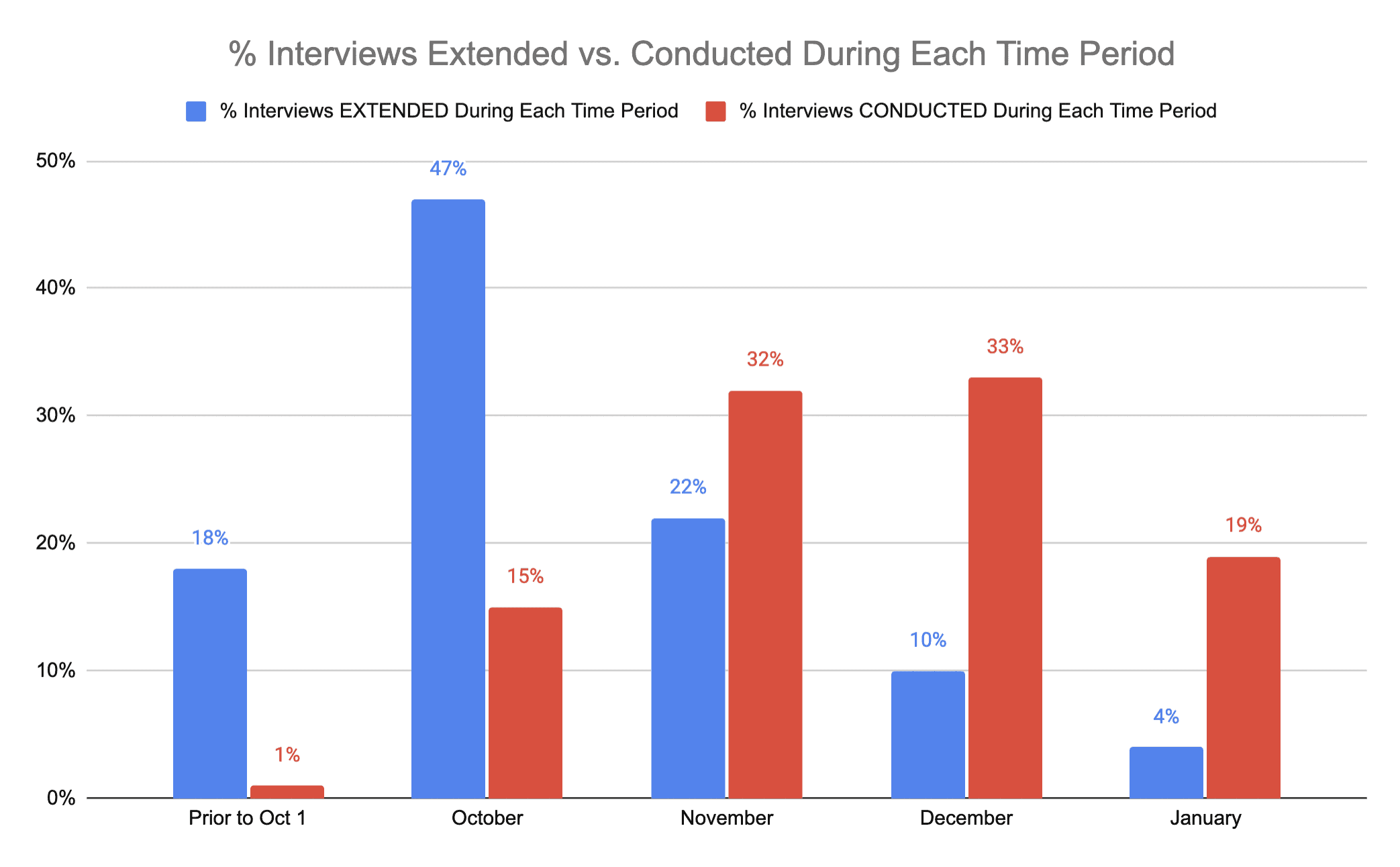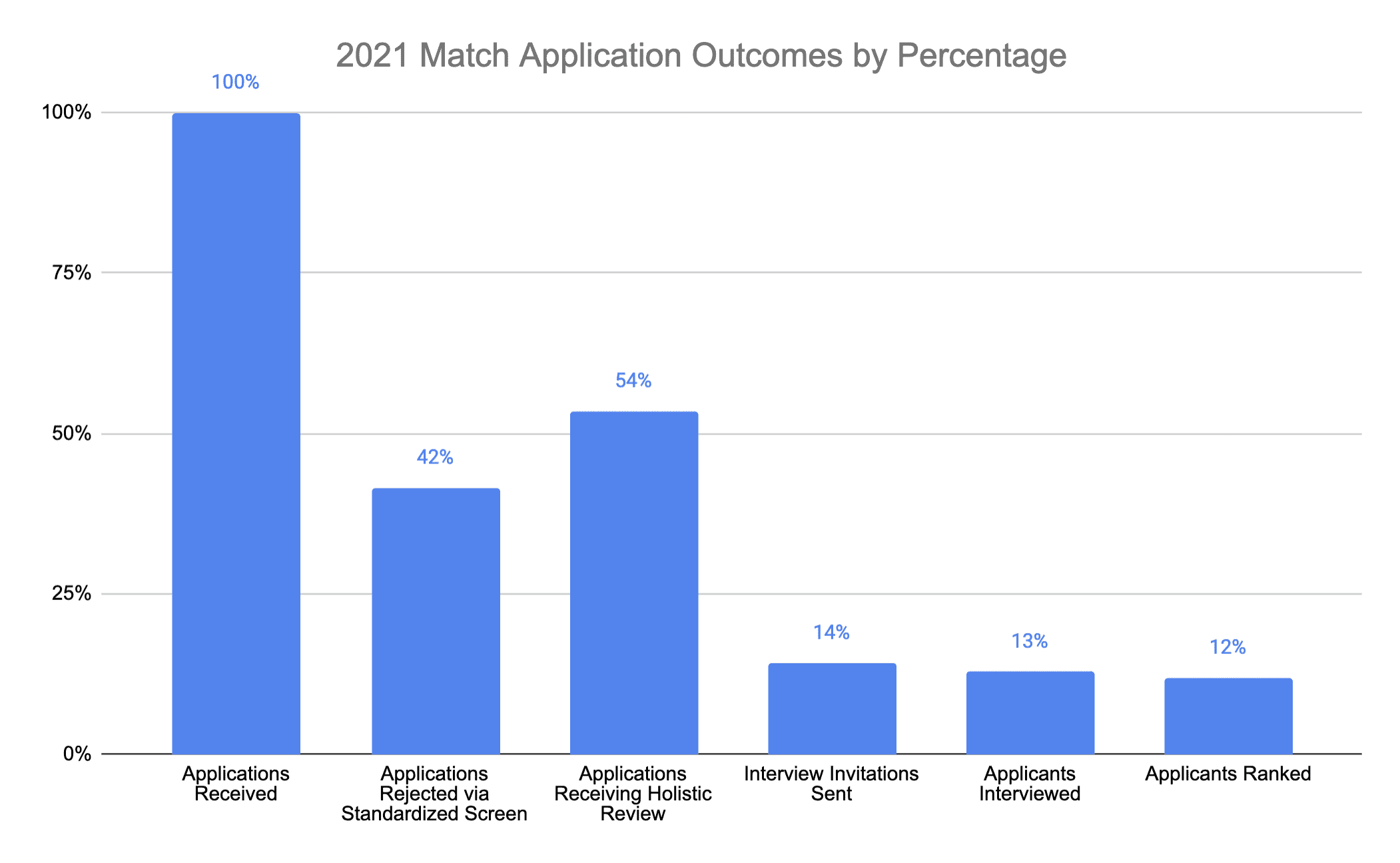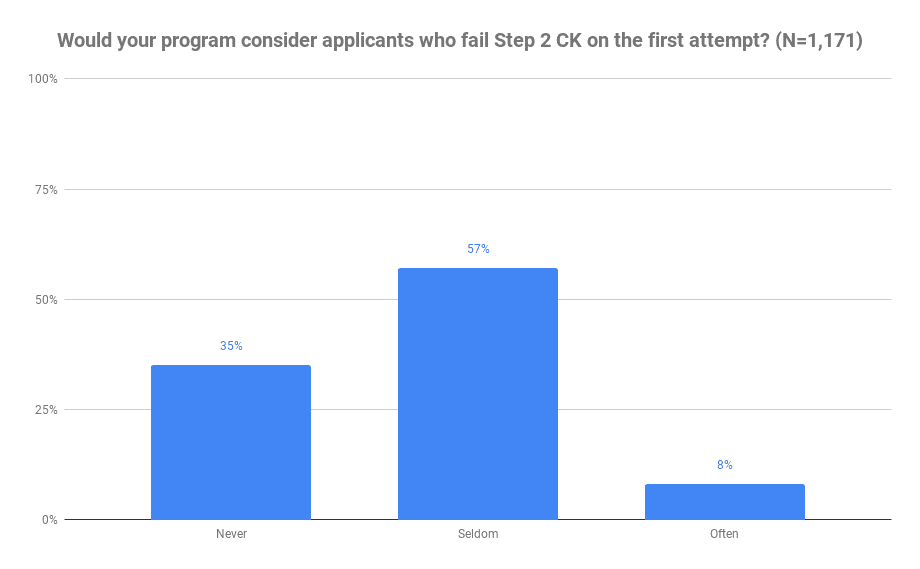

Are you thinking of when you should take Step 2 CK so that you can maximize your interview chances? Do you need to delay your exam but are unsure when to take it? Are you hoping to use Step 2 CK to make up for another deficit on your exam, and need to know when the last possible date to take it is?
If so, let us help you. In this article, we will discuss:
- When residency programs typically make most interview decisions,
- What date should you take your Step 2 CK by if you want to maximize your interview chances,
- The accuracy of the Step 2 CK NBMEs, and
- Much more
Table of Contents
Getting an Interview is Hard. Step 2 CK Can Help.
What is the most crucial consideration for your Step 2 CK date? Having an interview-worthy score in time to be offered an interview. Especially now that Step 1 is pass-fail Step 2 CK is likely to become the de facto screen on whether an application receives a close-up. Getting a more intimate look is the first step to getting an interview offer.
For example, according to the 2021 Program Directory Survey for that year’s Match, 42% of applications were rejected via a standardized screen. Step 2 CK will now feature much more prominently in the screening process that Step 1 is pass-fail.

2021 Match Application Outcomes by Percentage
Roughly half of the applications led to a “holistic review.” Of the 1000+ applications received by each program, on average, only 14% received an interview.
When Do Programs Extend Most Interviews?
At this time, the most recent data we have is from the 2020 Residency Program Director Survey. In it, they detail when most interviews were offered – and when most interviews were conducted.

% Interviews Extended vs. Conducted During Each Time Period
We can see that all but 14% of interviews were offered BEFORE December 1. In contrast, roughly 2/3 of interviews (65%) were extended before November 1.
When Should You Take Step 2 CK If You Want it to Count for Interviews?
We’ve spoken with many students taking Step 2 CK later than they’d hoped. Our recommendation: take Step 2 so that your score can come back in October, at the latest. Only ~1/3 of interviews are offered from November onwards – receiving a score after November 1 has less benefit.
In contrast, if your score comes out in October, many interview decisions have yet to have been made. Note, however, that these data do NOT include what week of October the invitations were made.
But What If Our NBMEs Aren’t Where We Want Them to Be?
Your ultimate decision on when – or even whether – to take Step 2 CK boils down to more art than an exact science. This is because
- Typically, Step 2 CK scores underestimate your scores, and
- An excellent Step 2 CK score may not help much if programs have already sent out their interviews
To balance this, one approach is to take your test so your score comes 1-3 weeks after you submit your ERAS application. If your score comes in after your application is submitted, you will have a CHOICE of whether to submit it to programs or not.
- Get a high Step 2 CK score? Send it on!
- Get a score you’d rather have programs not know? Only send it to the programs that ask
Note that this option of selectively releasing your score is ONLY available if you’ve already submitted your application. If you receive your score before submitting your application, you will have no choice but to let all programs know your score.
Just Be Careful About Not Passing Step 2 CK
One word of caution. It is true that delaying your test so your score comes out after applications are submitted gives you a choice of whether to let programs know the score or not. However, know that failing your USMLE can lead to you being automatically rejected by many programs.

Less than 1/3 of programs say they “never” consider someone who failed Step 2 CK
Roughly 1/3 of programs will reject your application if you have a USMLE failure. ~10% of programs will consider you regardless. In-between? Nearly 60% will “seldom” consider you.
Concluding Thoughts
Getting an interview is tricky. Even during the 2021 Match – when interviews were all conducted remotely – only 14% of all applications led to an interview being extended.
While it may feel daunting, there is still hope. If you’re still deciding when to take your Step 2 CK, delaying your exam by even a week can release some pressure. This relief comes in part because receiving your score after applications have been submitted can give you the choice of whether to submit it or not. Thus, a bad score is less scary – and a good score can only help you.
That said, if you are considering taking your exam later, try to take your test in time for it to help you. In prior years, most interviews were offered before November – and almost all were extended before December. As such, taking your test earlier is better.
Are you trying to figure out when to take your Step 2 CK? Do you worry about balancing your test date with when you might get interviews? How are you navigating the process? Let us know in the comments!







